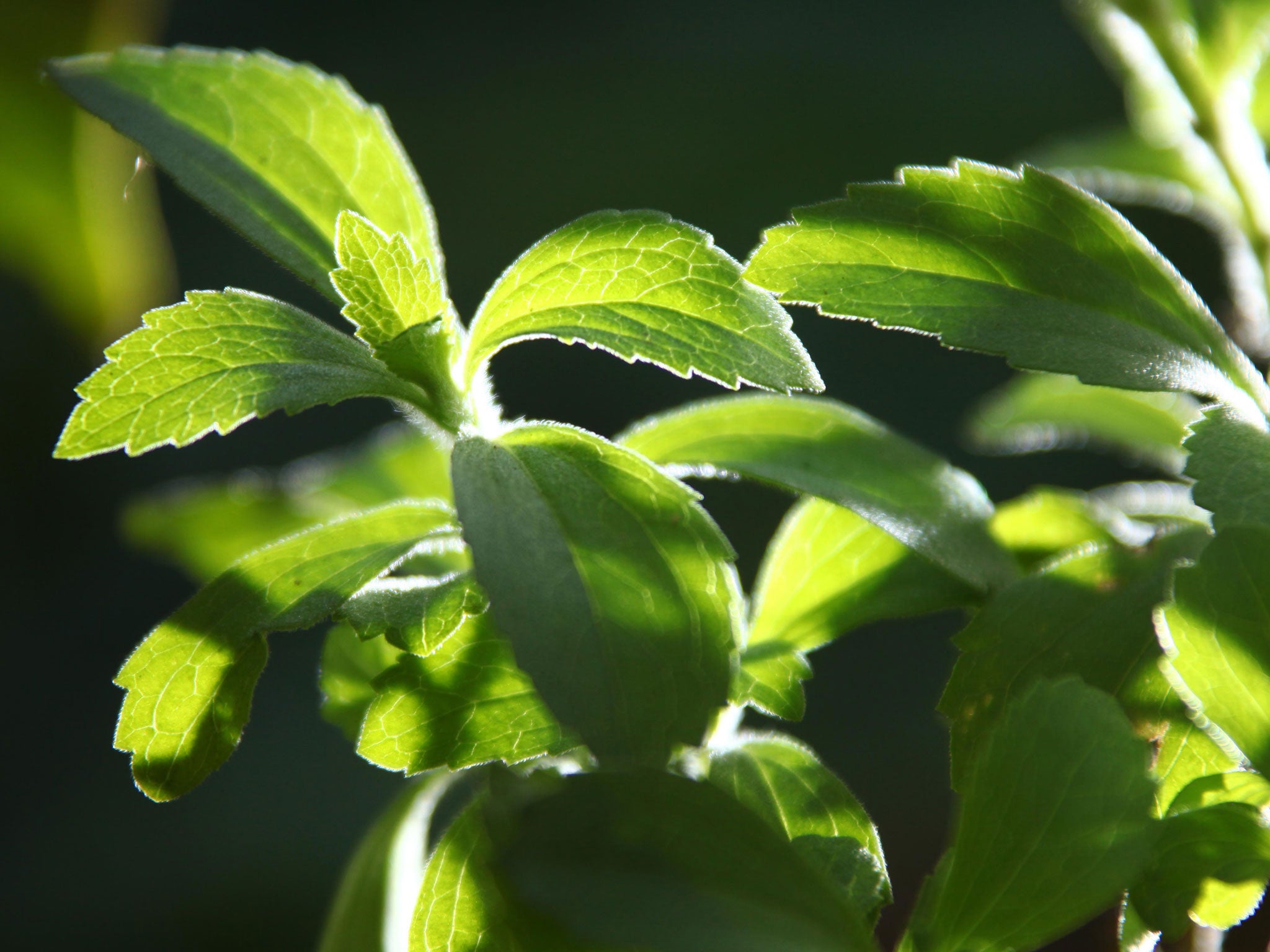Stevia wonder: The plant that's a super sugar alternative – and free from calories and carbs
The sugar substitute comes from a plant that has been used as a sweetener for centuries in Paraguay and Brazil

It can be hard to keep up with all the bad news on sugar – or the smoking of our time as it's rapidly becoming known. It has become this generation's ticking time-bomb, leaving a trail of diabetes and obesity in its wake. Last week, the World Health Organisation added its voice to the fray, warning that sugar should make up just 5 per cent of our daily calorie intake, half what it had previously advised.
But help for the sweet-toothed – which, given that manufacturers spike even the most wholesome-sounding cereals with sugar, means practically everyone – is at hand
From their cupboard of substitutes, food science analysts report that salvation lies in a naturally sourced substance called stevia, which has no calories, no carbohydrates, and does not raise blood sugar levels. It comes from a plant that has been used as a sweetener for centuries in Paraguay and Brazil, and has been sold in Japan for about 40 years, yet the West has been slow to wake up to its virtues. Stevia-based products have only been approved as food additives since 2008 in the US, and since 2011 in the EU.
A recent report by Mintel and Leatherhead Food Research predicted that the value of such products, which are mainly manufactured by the food giant Cargill, would soar to $275m by 2017 from $110m in 2013.
One drawback is that despite being between 250 and 300 times sweeter than sugar, some people find it has a slightly bitter, liquorice-like aftertaste. But companies are getting round this by blending it.
Tropicana recently launched a juice made including stevia, halving the number of calories per serving. And Coca-Cola is poised to launch its stevia-sweetened alternative to Coke across the world. It already sells a version of Sprite that includes stevia.
Laura Jones, a food science analyst at Mintel, said: "Stevia is the one to watch. It's still early in the innovation process, but it will become more appealing as new variants are released. Consumers want to cut sugar in their diets but not compromise on taste, plus they want to move away from anything artificial, so the appeal of plant-derived products is much stronger."
People are increasingly avoiding artificial sweeteners such as aspartame and acesulfame K. But dieticians warn this is a mistake. "There are some misconceptions that they're dangerous but there is no evidence that any are harmful," said Cara Sloss, a spokeswoman for the British Dietetic Association.
Some consumers may dislike their taste, but they don't pack anything like the calorific punch of sugar, which has 400 kilocalories in every 100 grams. The use of intense sweeteners in food and drink product launches has grown from 3.5 per cent in 2009 to 5.5 per cent in 2012, the same report found. The global market for all sweeteners as additives in food manufacture was worth more than $2bn in 2012.
Other natural alternatives include the fuzzy, green, melon-like monk fruit, once cultivated by Buddhist monks in China. It is already used in the US, where analysts believe it could help to revive the flagging diet soda sector.
The "main message", though, says Ms Sloss, is that we need to cut down. "It's about re-educating your tastebuds, because we know sugar is addictive."
Grow your own 'sugar'
Stevia may sound like it's made in a laboratory, but it is in fact a plant that anyone can grow at home. Yet strict EU rules mean that it can't be grown for domestic human consumption in the UK – even though gardeners in the US can do so – and can only be cultivated as an ornamental herb. But there are other options for people who want to grow their own "sugar". Sweet Cicely (Myrrhis odorata), can be used as a sugar substitute – the seeds and dried leaves can be added to fruit pies and crumbles, while the flowers, and even the roots, are also good for salads or cooking. Gardener Sarah Raven says the plant adds a "gentle aniseed flavour" to dishes.
Jane Merrick
Subscribe to Independent Premium to bookmark this article
Want to bookmark your favourite articles and stories to read or reference later? Start your Independent Premium subscription today.

Join our commenting forum
Join thought-provoking conversations, follow other Independent readers and see their replies